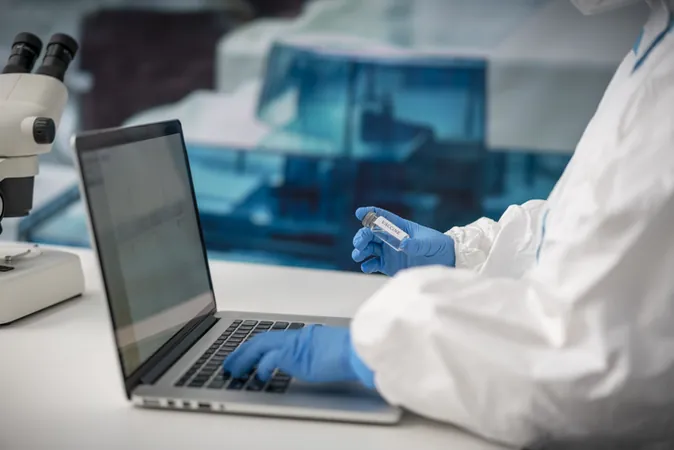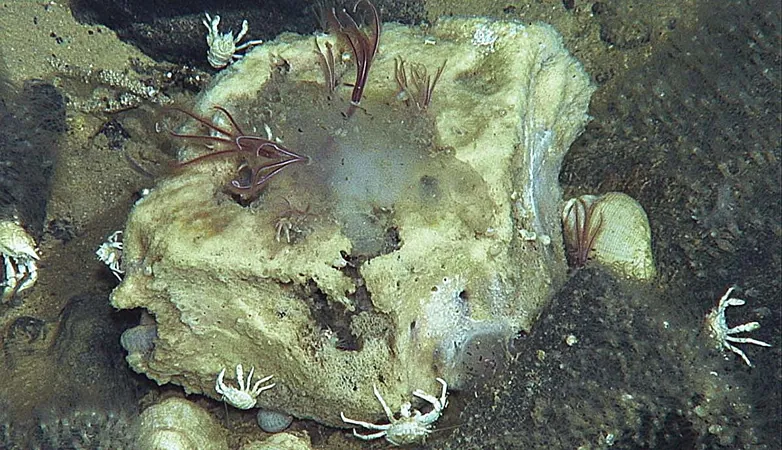
Revolutionary PEG Alternative Set to Transform mRNA Vaccine Efficacy
2025-05-29
Author: Nur
Cornell University Innovates mRNA Delivery System
In a groundbreaking development, researchers at Cornell University have created a game-changing material that could reshape the landscape of mRNA vaccines. By replacing the commonly used poly(ethylene) glycol (PEG) in lipid nanoparticles (LNPs), they aim to mitigate unwanted immune responses that affect some recipients. This innovation could significantly boost the delivery and effectiveness of mRNA vaccines.
The PEG Problem: Immunogenicity Concerns
Though PEG has been a staple in drug delivery systems, recent studies have raised red flags about its potential to trigger allergic reactions in certain individuals. The use of PEG in mRNA vaccine delivery has been linked to accelerated immune responses, resulting in the production of anti-PEG antibodies that can lead to reduced vaccine efficacy upon repeated administration.
Introducing PCB: The Future of LNPs
Led by Dr. Shaoyi Jiang, Cornell's team has developed a new lipid known as poly(carboxybetaine) (PCB) as a superior alternative to PEG. Their research, published in *Nature Materials*, showcases preclinical studies that reveal PCB-based LNPs not only enhance therapeutic efficacy but also demonstrate the ability to be administered multiple times without losing effectiveness.
A Stealthy Approach to Vaccine Deployment
Vaccines work by training the body to produce proteins that combat diseases. For mRNA vaccines to succeed, their delivery vehicles must be stable enough to protect fragile mRNA while ensuring it is effectively absorbed by cells. Traditional LNPs rely on PEG for stability and stealth, preserving the mRNA while evading the immune system. However, the immune system often flags PEG-coated particles as foreign, triggering adverse reactions.
The Superiority of Zwitterionic Nanoparticles
Enter zwitterionic polymers. With their hydrophilic properties, PCB can seamlessly integrate into the body, enhancing mRNA delivery without triggering the immune system's defenses. Previous research indicates that many individuals already possess anti-PEG antibodies due to their exposure to common products such as shampoos, making this change not only innovative but essential.
Enhancing Efficacy While Reducing Risk
The transition from PEG to PCB has shown promising results. PCB-LNP formulations have demonstrated a safer immunotoxicity profile and effectively addressed the issues of accelerated blood clearance seen in PEG-LNPs. The introduction of PCB may pave the way for more efficient mRNA vaccines that induce targeted immune responses while minimizing negative side effects.
Scaling Up for Real-World Applications
Dr. Jiang is collaborating with institutions like Weill Cornell Medicine and the National Cancer Institute to bring this revolutionary approach to clinical settings. This is particularly significant for mRNA-based cancer vaccines, where higher doses are often required to elicit a response. In cases where PEG poses a problem, the impact could be amplified, making PCB's adoption all the more critical.
A New Chapter in Vaccine Technology
As the world continues to grapple with the COVID-19 pandemic and beyond, this innovative shift to PCB-based LNPs epitomizes the future of vaccine technology. By enhancing efficacy and safety in mRNA delivery, this breakthrough could enable the next generation of vaccines, making them more effective and widely acceptable across diverse patient populations.


 Brasil (PT)
Brasil (PT)
 Canada (EN)
Canada (EN)
 Chile (ES)
Chile (ES)
 Česko (CS)
Česko (CS)
 대한민국 (KO)
대한민국 (KO)
 España (ES)
España (ES)
 France (FR)
France (FR)
 Hong Kong (EN)
Hong Kong (EN)
 Italia (IT)
Italia (IT)
 日本 (JA)
日本 (JA)
 Magyarország (HU)
Magyarország (HU)
 Norge (NO)
Norge (NO)
 Polska (PL)
Polska (PL)
 Schweiz (DE)
Schweiz (DE)
 Singapore (EN)
Singapore (EN)
 Sverige (SV)
Sverige (SV)
 Suomi (FI)
Suomi (FI)
 Türkiye (TR)
Türkiye (TR)
 الإمارات العربية المتحدة (AR)
الإمارات العربية المتحدة (AR)